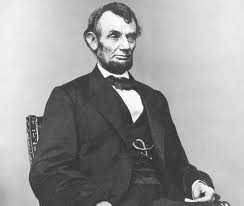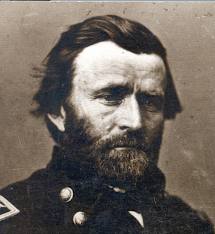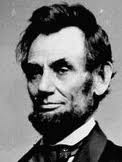 Lincoln was elated after reviewing the final reports on the battle at Shiloh and Grant’s victory in Tennessee. The press and the politicos hammered President Lincoln in regard to the initial rumors of General Grant’s failures at the Battle of Shiloh. Grant had achieved stunning victories at Fort’s Henry and Donelson. The fickle press acclaimed General Grant an immediate Union hero, which inflamed Grant’s commander, General Halleck, into believing that his subordinate was upstaging him. All wars are launching platforms for would-be politicians, commanding generals and historians, the American Civil War was no different. Petty jealousies, inflated egos and delusions of grandeur and reputation assassination were rife among the military and power elite of the United States Government. Grant had an Achilles heal, a past that haunted his career and the General’s peers would not acknowledge his genius. Succumbing to his own ego and political and media pressure, Halleck relieved Grant, after Shiloh, assumed his troops command and moved his responsibilities to an almost non-existent posting in Cairo, Illinois.
Lincoln was elated after reviewing the final reports on the battle at Shiloh and Grant’s victory in Tennessee. The press and the politicos hammered President Lincoln in regard to the initial rumors of General Grant’s failures at the Battle of Shiloh. Grant had achieved stunning victories at Fort’s Henry and Donelson. The fickle press acclaimed General Grant an immediate Union hero, which inflamed Grant’s commander, General Halleck, into believing that his subordinate was upstaging him. All wars are launching platforms for would-be politicians, commanding generals and historians, the American Civil War was no different. Petty jealousies, inflated egos and delusions of grandeur and reputation assassination were rife among the military and power elite of the United States Government. Grant had an Achilles heal, a past that haunted his career and the General’s peers would not acknowledge his genius. Succumbing to his own ego and political and media pressure, Halleck relieved Grant, after Shiloh, assumed his troops command and moved his responsibilities to an almost non-existent posting in Cairo, Illinois.
 General Ulysses S. Grant, was fully aware of his shortcomings and overcame these deficiencies by surrounding his command with a competent staff, that was beyond compare. Grant rarely shared his battle plan in advance, led from the front and wouldn’t micro-manage his subordinate’s decisions. His staff succeeded or failed on their own merit, but the General would always accept the responsibility of his Army’s victory or defeat. The troops eventually came to realize that their General would always move in a direction of the enemy and despite heavy losses, their leader was tenacious and brave, an ordinary man that they could rely on and would some day lead them to victory.
General Ulysses S. Grant, was fully aware of his shortcomings and overcame these deficiencies by surrounding his command with a competent staff, that was beyond compare. Grant rarely shared his battle plan in advance, led from the front and wouldn’t micro-manage his subordinate’s decisions. His staff succeeded or failed on their own merit, but the General would always accept the responsibility of his Army’s victory or defeat. The troops eventually came to realize that their General would always move in a direction of the enemy and despite heavy losses, their leader was tenacious and brave, an ordinary man that they could rely on and would some day lead them to victory.
One of General Grant’s greatest assets, was his friend and confidant, General William Tecumseh Sherman. These two were from the same mold, neither cared for personal trappings or grandeur. Both General’s understood the concept of “total war”and grasped the knowledge of the eventual futility of the Southern Cause. In addition, either General could and would make the decisions that other commanders couldn’t or wouldn’t make, based on public or political sentiment. Also, casuality totals, even though staggering and emotionally, spiritually, and morally draining, were the only means to the end of the nation’s nightmare.
 Lincoln was besieged by his cabinet, politicians, personal friends, arm-chair generals and media moguls, to immediately relieve General Grant from command and essentially banish him to the ranks of civilian oblivion. The President’s major heartburn, since the war began, was trying to discover a General who could plan and then execute the plan, in order to defeat the Armies of the Confederacy. Lincoln did not have any luck in this endeavor. He had cajoled, suggested, intimidated and flatly ordered his military leadership to engage the rebel insurgency, but with little, if any success.
Lincoln was besieged by his cabinet, politicians, personal friends, arm-chair generals and media moguls, to immediately relieve General Grant from command and essentially banish him to the ranks of civilian oblivion. The President’s major heartburn, since the war began, was trying to discover a General who could plan and then execute the plan, in order to defeat the Armies of the Confederacy. Lincoln did not have any luck in this endeavor. He had cajoled, suggested, intimidated and flatly ordered his military leadership to engage the rebel insurgency, but with little, if any success.
One day after the bloodletting of Shiloh and the public and press were totally unhinged, demanding Grant’s ouster, a Lincoln staffer shared with the President a rumor of Grant’s drunkenness during the recent battle. The President listened attentively and stated,
“Oh, we get all sorts of reports here, but I’ll say this to you: that if those accusing General Grant of getting drunk will tell me where he gets his whiskey, I will get a lot of it and send it around to some of the other generals, who are badly in need of something of the kind.”
And
“I can’t spare this man, he fights!”
Bummer


Indeed, Grant fought hard. The more I hear of Gen. Halleck. the more I see of a petty and vindictive man. After the loss at Chickamauga, the US Army retreated into Chattanooga. Grant replaced Rosencranz as the leader. Since the city was surrounded by CSA, Grant called for Sherman to come from west Tennessee and Mississippi to free up the supplies. Halleck made Sherman repair railroad lines along the way; thus, causing terrible hardship on the troops in Chattanooga. I have a great deal of respect for Generals Grant, Sherman and Thomas; Halleck not so much.
Sandy,
Halleck was kind of biding his time in Washington, while the younger and aggressive Generals like Sherman and Grant took care of business out west. Tennessee and the waterways were the key to the south. Control of the inland rivers and then the Mississippi, Georgia next and the demise of the Confederacy was just a matter of time and more blood. Thomas was so involved in strategic planning, he had a hard time “getting off the dime” or as Grant stated “he had a case of the slows” but when he did advance or fight he normally gave a good account of his leadership and his army. Don’t forget Sheridan, he was a comer and would be key to Grant’s ultimate victory over Lee in the East. If you have a chance check out todays blurb on one of Bummer’s special Generals, The Golden Boy, “little Mac”. Thanks for stopping buy. The “old guy” posts daily.
Bummer